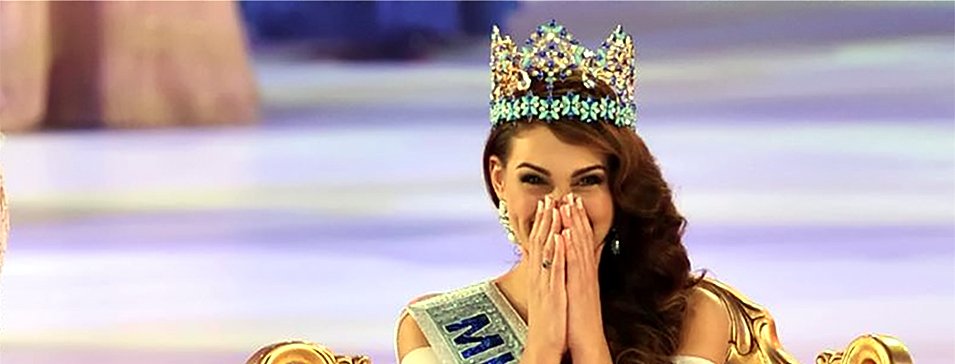
Photo: Netwerk 24
The management, staff and students of the University of the Free State (UFS) are delighted with the naming of Rolene Strauss, third-year MB ChB student in the School of Medicine, as Miss World 2014.
Rolene was crowned as Miss World 2014 in London, United Kingdom, earlier this evening. The last time a South African was crowned Miss World was in 1974, when Anneline Kriel walked away with the title. Before her, Penny Coelen was crowned Miss World in 1958.
“Rolene represents the best of South Africa - a deep commitment to education and a profound compassion for human beings. Since the first day I met her as a new first-year medical student, I was aware of somebody special, a young woman from a rural area who carried herself with so much grace and confidence. She is truly without prejudice towards any human being and this has made her one of my allies in building the Human Project of the University of the Free State,” says Prof Jonathan Jansen, Vice-Chancellor and Rector of the UFS.
“I was not at all surprised that she chose as her beauty-with-a-purpose project the task of keeping young girls in school; this is who she is, and if you observe her dedication to her medical studies, you see someone for whom studies and service are not the add-on obligations of the Ms World Pageant; it is who she is in real life,” he says.
“Rolene has proven herself to be a dedicated, hard-working and enthusiastic young woman. These are qualities which will make her an equally exceptional Miss World,” says Prof Gert van Zyl, Dean of the Faculty of Health Sciences.
According to Prof Van Zyl, Rolene interrupted her medical studies when she competed in the Miss South Africa pageant. “We are extremely proud of Rolene and will definitely welcome her back after her year as Miss World. She is an inspiration to us all,” he says.
According to Mosa Leteane, President of the UFS Student Representative Council (SRC), the entire student community is elated about Rolene’s crowning. “We know that she will continue to do great on her new journey. Her passion for people and kind spirit are some of the many beautiful traits that continue to make her an exemplary fellow Kovsie. We would like to congratulate her and wish all the best. She has really made us extremely proud,” says Leteane.